This time, we’re introducing Busu Nante Iwanaide—a refreshingly honest manga that tackles bullying, self-image, and female empowerment, all while offering casual, natural Japanese ideal for learners.
Work Information
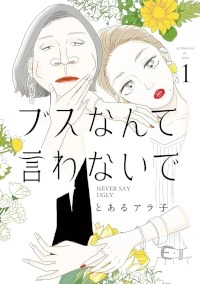
Busu nante iwanaide(ブスなんて言わないで)
Author: Toaru Arako
Publisher: KODANSHA
Amount of text: moderate
Challenge level: ★★
Latest volume : Vol.5(Nov.2024 / Ongoing)
Story overview
“Lookism? They’re here to crush it.” From the creator of What If a Beautiful Woman Tried Marriage Hunting comes a bold new story tackling anti-lookism and sisterhood head-on!
Tomoko, once bullied and called “ugly” during her school days, learns that Rika—the beautiful classmate who tormented her—is now a successful beauty influencer. Fueled by rage, Tomoko sets her sights on revenge.
This breakout hit sparked a huge reaction on social media from the moment it began serialization. Now, the highly anticipated Volume 1 is here!
The Appeal of This Manga
This is a bold and timely work that takes on the still-taboo topic of “ugliness” (busu)—a word rarely addressed directly in modern Japanese media.
Tomoko, who has lived in the shadows with deep insecurities about her appearance, finds herself face-to-face with Rika, the beautiful classmate who once bullied her—now turned anti-lookism beauty advocate. Their unexpected reunion forces Tomoko to confront heavy but important themes: What does “ugly” really mean? What does beauty look like in a diverse world? How much do looks matter in love?
Despite the weight of these topics, the manga’s light, humorous art style and unique undercurrent of comedy keep it from feeling overly heavy. In fact, it leaves you with a surprisingly refreshing aftertaste.
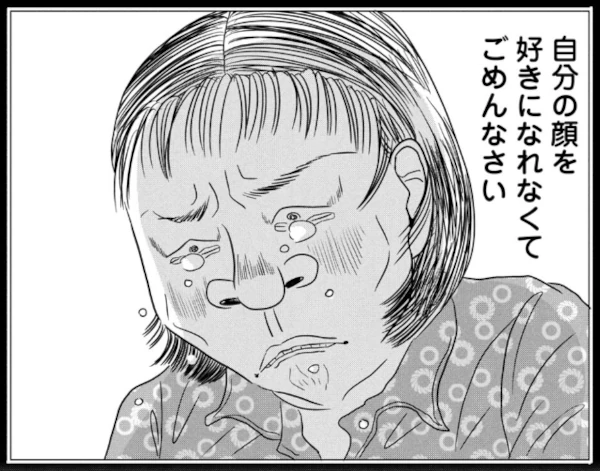
Why this manga is suitable for learning Japanese
This manga is not only entertaining but also highly recommended for Japanese learners for several reasons.
Natural, casual Japanese dialogue
This manga avoids the kind of overly dramatic or fictional speech patterns like “~dawa(〜だわ)” or “~yo(〜よ)” that often appear in fictional works. Instead, the dialogue sticks closely to natural, everyday Japanese, making it a great resource for learners. Since the main cast is mostly female, the conversations are especially helpful for women studying Japanese.
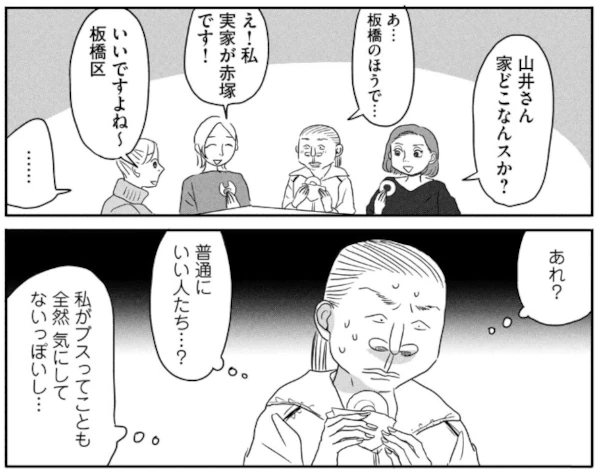
Just the right amount of text
The text density is moderate—not overwhelming, but not too sparse—making it an easy read. Even beginner-level learners should find it approachable without too much difficulty.
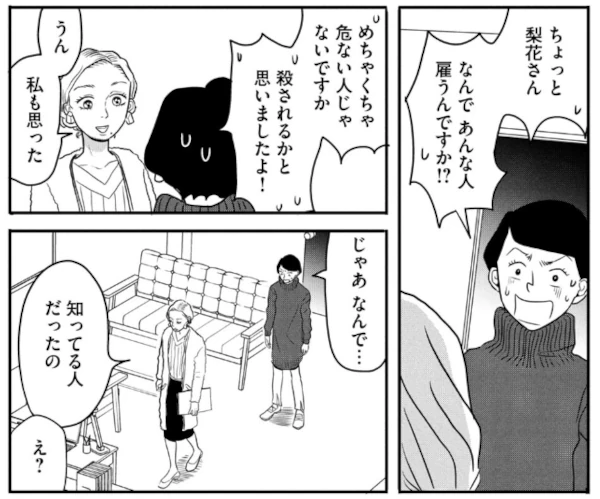
Phrase Spotlight
“Busu”: A Word Japan Is Quietly Leaving Behindブス
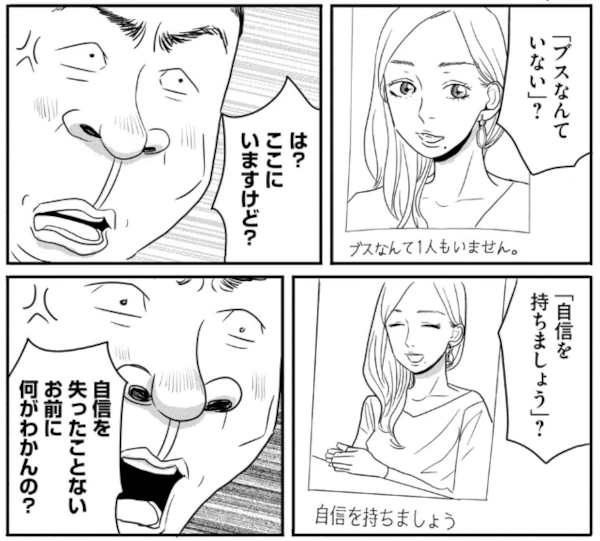
In the manga Busu Nante Iwanaide (“Don’t Call Me Ugly”), the main character confronts a classmate who once ridiculed her appearance. The title uses a word many Japanese speakers today avoid—ブス (busu), a slang term for an unattractive woman. Why is this word so charged, and what does it reveal about evolving beauty norms and language in Japan?
Let’s explore the meaning and cultural weight of busu, and how it compares to words around beauty in other languages.
From Classical Roots to Cruel Slang
The word ブス originates from busu (附子), a historical term for a toxic plant extract used in poison darts. In the Edo period, it was associated with paralysis and disfigurement, and eventually came to be slang for something grotesque or unpleasant. By the 20th century, busu was used to mock or insult women considered unattractive—often with a harsh, dehumanizing tone.
Unlike English terms like “ugly” or “plain,” which can refer to any gender, busu almost always targets women. It’s deeply gendered and laced with social judgment, making it especially painful when used in school settings or media.
Why “Busu” Is Fading from Mainstream Media
Over the past decade, the term busu has steadily disappeared from TV shows, commercials, and official publications. Japanese broadcasters have internal guidelines to avoid potentially discriminatory language, and busu is often flagged as “NGワード” (NG word)—inappropriate for public use.
This reflects a broader cultural shift in Japan toward sensitivity in language, especially concerning body image, gender roles, and mental health. Just as English-speaking media now avoids once-common terms like “fatso” or “retarded,” Japanese culture is reconsidering the everyday cruelty embedded in words like busu.
Beauty, Shame, and Language in Modern Japan
Japan’s beauty ideals—pale skin, slim bodies, double eyelids—continue to shape self-image and social norms. Harsh words like busu remain deeply hurtful, made more striking by Japan’s typically indirect communication.
Recently, younger generations have begun to challenge these pressures. On social media, voices criticizing lookism (ルッキズム) are growing, alongside discussions about language, self-esteem, and mental health.
Yet at the same time, the pressure to appear beautiful is only intensifying. The rise of filters and online comparison has fueled a troubling trend: more young people in Japan are turning to cosmetic surgery, raising new societal concerns.
In this context, Busu Nante Iwanaide (“Don’t Call Me Ugly”) becomes more than a title—it’s a quiet act of resistance.
What Learners Can Take Away
For Japanese learners, encountering a word like busu can be unsettling—but it also reveals how language reflects deeper cultural values.
In Busu Nante Iwanaide, the main character’s story questions the idea that beauty defines worth, inviting readers to consider how words shape identity and emotion.
By engaging with expressions like busu in context, learners gain more than vocabulary—they begin to understand the social undercurrents of modern Japanese life.
A Little Warning
Kansai dialect
One character, Yamamoto, who becomes close to Tomoko at work, speaks in Kansai dialect. Learners who aren’t familiar with Japanese regional dialects might find this a little challenging at first, but it’s a great opportunity to expand your understanding of natural variation in spoken Japanese.
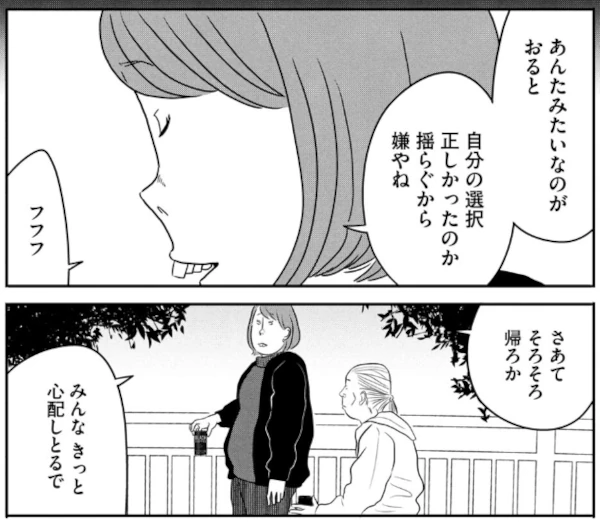
Work Information

Busu nante iwanaide(ブスなんて言わないで)
Author: Toaru Arako
Publisher: KODANSHA
Amount of text: moderate
Challenge level: ★★
Latest volume : Vol.5(Nov.2024 / Ongoing)
Here’s a safe and convenient way to purchase Japanese manga.
This Blog’s ConceptIn this blog, we are introducing manga that are not only highly captivating but also ideal for Japanese language learners. Studying Japanese through manga is both fun and effective. Manga allows you to understand the subtleties of keigo (honorifics), teineigo (polite speech), and casual conversation in Japanese. We hope you find works that match your interests and use them to enhance your Japanese learning journey.